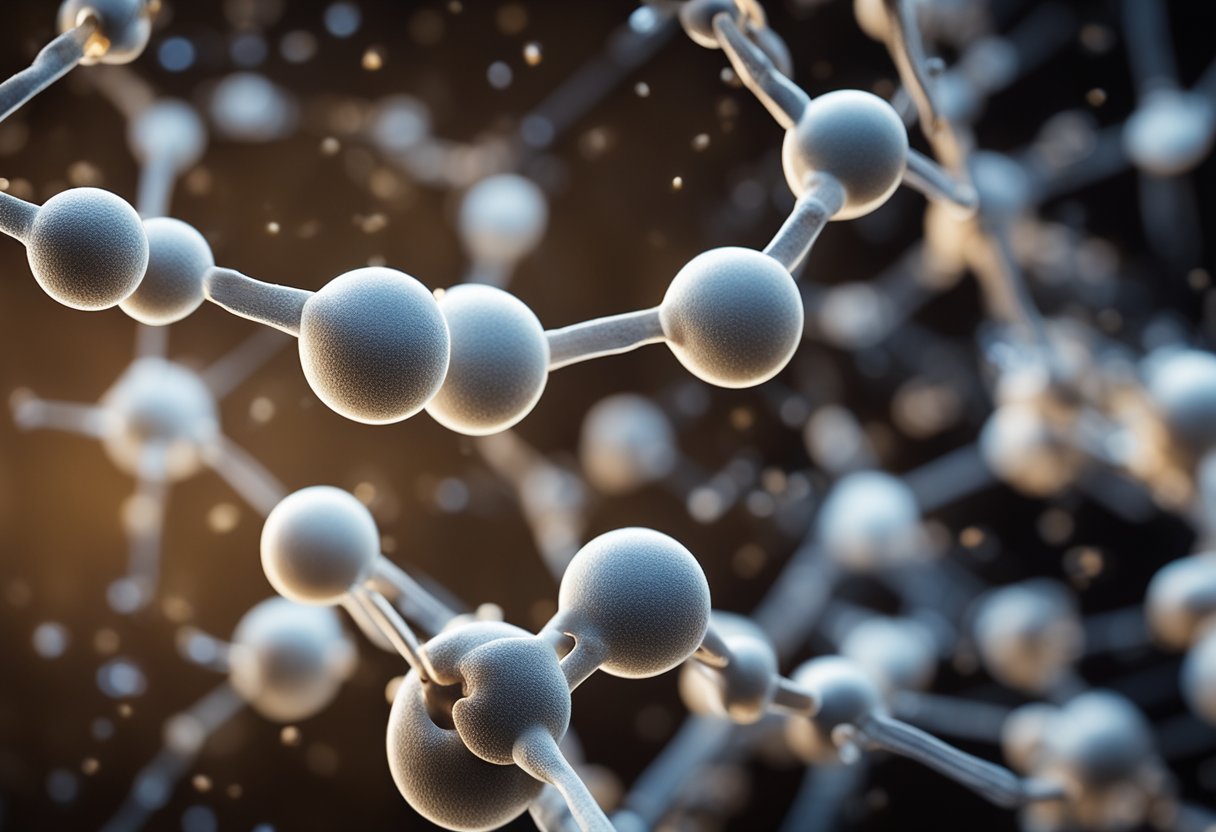How Long Does Caffeine Stay in Your System: Understanding the Duration of Effects
Caffeine is a familiar stimulant found in various foods and beverages, such as coffee, tea, chocolate, and some soft drinks. Its ability to ward off drowsiness and restore alertness is widely appreciated, especially in a culture that values productivity. But as one enjoys the immediate boost, few consider the duration of caffeine in their system and how it might affect sleep patterns and overall health.

Once ingested, caffeine is quickly absorbed into the bloodstream, reaching peak levels within an hour. The body then metabolises caffeine, primarily through the liver, with the effects lasting several hours. Healthline suggests the substance can linger in the body for up to 5 hours after consumption, though its impact may be felt for considerably longer depending on individual factors. These factors include metabolism, age, weight, medication use and level of caffeine tolerance, all contributing to how long it takes for caffeine to be eliminated from one’s system.
Understanding how caffeine interacts with the body can help people make informed decisions about their consumption habits. While it’s known for its benefits in concentration and alertness, knowing when to limit intake is crucial as it may hinder sleep quality and lead to restlessness if consumed too late in the day. Reducing the negative outcomes of caffeine relies on knowledge of its duration in the body—a topic addressed in various articles such as those on WebMD that discuss the balance between the upsides and downsides of this common stimulant.
Understanding Caffeine’s Presence in the Body

To appreciate caffeine’s effects, one must understand its chemical attributes, how it’s absorbed and metabolised, and the factors that influence its impact on the body.
Chemical Nature and Common Sources
Caffeine is a natural stimulant most commonly found in tea, coffee, and certain sodas. It’s also present in chocolate and some energy drinks. The caffeine content in these beverages and foods can vary significantly. For instance, a single espresso may contain as much as 63 milligrams of caffeine, while a can of soda typically has around 40 milligrams.
Absorption and Metabolism
Once ingested, caffeine is rapidly absorbed from the gut into the bloodstream. It then travels to the liver, where it undergoes metabolism. The primary enzyme system in caffeine metabolism is the cytochrome P450 oxidase system, which processes caffeine into compounds that impact various organs, notably the brain.
In the brain, caffeine blocks adenosine receptors, thereby reducing tiredness and making one feel more alert. Caffeine reaches peak levels in the blood within 30 to 60 minutes of consumption and has a half-life of approximately five hours, according to Healthline.
Factors Influencing Caffeine’s Effects
Numerous factors contribute to how one’s body responds to caffeine. These include age, body mass, and metabolism rate. Additionally, a person’s tolerance to caffeine can decrease its stimulant effects.
Regular caffeine consumption can lead to dehydration due to its diuretic properties. Hence, maintaining hydration by drinking plenty of water is essential. There’s also a relationship between caffeine and the central nervous system, where the stimulant’s effects can vary from person to person.
The Impact of Caffeine on Health and Lifestyle
Caffeine plays a significant role in many people’s daily routines, with varied effects on health and lifestyle. It’s important to understand the balance between its potential benefits and risks.
Short-Term and Long-Term Effects
In the short term, caffeine can boost alertness and focus, making it a popular choice for adults needing to stay awake or concentrate. However, caffeine can lead to jitters, restlessness, and insomnia if consumed in high doses. Over time, individuals may develop caffeine tolerance, which reduces the stimulant’s effectiveness. Long-term impacts can include trouble sleeping and increased anxiety, especially in those with pre-existing medical conditions.
Health Benefits and Concerns
Consumed in moderation, caffeine can have positive effects such as improved mental alertness and, potentially, enhanced physical performance. On the flip side, excessive intake of caffeine, particularly in the form of energy drinks or supplements, may raise blood pressure and heart rate, leading to heightened anxiety and irregular heartbeat. It’s critical for consumers to check the labels on foods and drinks to monitor their caffeine intake.
Handling Caffeine Sensitivity and Withdrawal
Sensitivity to caffeine varies among individuals, with some experiencing adverse effects, even in small quantities. Symptoms like headaches, fatigue, and dizziness can arise from caffeine withdrawal. Lowering consumption gradually can help minimise withdrawal symptoms. Decaffeinated coffee and green tea are suitable alternatives for those with high sensitivity or looking to reduce caffeine consumption for health reasons such as pregnancy or breastfeeding.
Frequently Asked Questions
In this section, one will find commonly asked queries regarding the duration of caffeine’s effects in the human body. They encompass how caffeine influences sleep patterns, heart rate, precautions during breastfeeding, and its overall metabolism.
How long can one remain awake after consuming coffee?
The time a person can stay awake after drinking coffee varies greatly among individuals. Caffeine can significantly impede one’s ability to fall asleep due to its half-life of approximately 5 hours.
What is the duration of caffeine’s impact on heart rate?
Caffeine’s effects on one’s heart rate could last for a few hours. It can cause a temporary increase in heart rate and is usually felt within minutes after consumption, but specific durations differ from person to person.
How long should one avoid caffeine while breastfeeding?
When breastfeeding, it’s advised to limit caffeine intake or consume it shortly after breastfeeding to allow time for caffeine levels to diminish. Avoiding caffeine 3 to 4 hours before breastfeeding is often recommended.
After consuming caffeine, when does it typically begin to affect the body?
Caffeine’s effects are typically felt within 15 to 45 minutes of consumption, as it is rapidly absorbed into the bloodstream.
How long does a dose of caffeine influence blood pressure levels?
A dose of caffeine can raise blood pressure for a short duration, often lasting 3 to 4 hours, although the exact time can vary based on individual sensitivities and consumption amounts.
What is the average time required for caffeine to be completely eliminated from the body?
The time it takes for caffeine to be completely cleared from one’s body averages from 10 to 15 hours, depending on individual metabolic rates and other factors.
